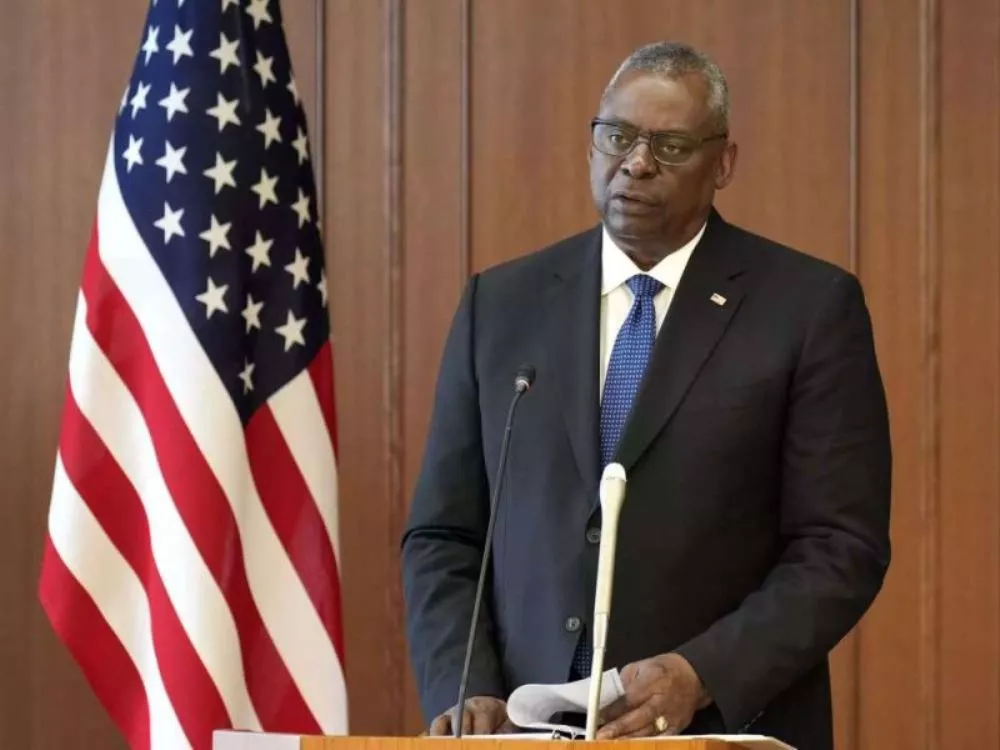China’s Defense Minister, General Li Shangfu, defended China’s actions regarding a warship incident in the Taiwan Strait during his first international public address at the Shangri-La Dialogue in Singapore. He criticized the so-called “freedom of navigation” patrols conducted by the United States and its allies, stating that such patrols are provocations to China. In response, U.S. Defense Secretary Lloyd Austin emphasized that the U.S. would not back down in the face of coercion from China and would continue to assert the international status of the Taiwan Strait and the South China Sea.
The incident occurred when a Chinese warship intercepted a U.S. guided-missile destroyer and a Canadian frigate in the Taiwan Strait, a disputed area between mainland China and the self-governed island of Taiwan. The Chinese vessel overtook the American ship and maneuvered across its bow in an unsafe manner, according to the U.S. Indo-Pacific Command. This encounter, along with previous incidents involving aggressive Chinese behavior, has raised concerns about a potential escalation between the two nations.
General Li argued that the U.S. and its allies were responsible for creating the dangerous situation and urged them to focus on their own territorial airspace and waters. He reiterated China’s claim on Taiwan, considering it a core interest of the nation. Li accused the U.S. and other countries of meddling in China’s internal affairs by providing support to Taiwan and conducting high-level diplomatic visits.
While China advocates for peaceful development, Li emphasized that the country would not hesitate to defend its legitimate rights and interests. He used a popular Chinese song’s lyrics to convey the message that China welcomes friends but will confront adversaries. In contrast, Secretary Austin outlined the U.S. vision for a free, open, and secure Indo-Pacific region based on rules and rights. He highlighted increased planning, coordination, and training with partners in the region to deter aggression and promote prosperity.
Li criticized the U.S.’s selective approach to international rules and laws, accusing it of imposing its own rules on others without transparency or clarity. He emphasized China’s commitment to multilateralism and win-win cooperation as an alternative. It’s worth noting that Li is under American sanctions imposed in 2018 for his involvement in China’s purchase of combat aircraft and anti-aircraft missiles from Russia. However, the sanctions do not prevent him from participating in official talks.
Despite shaking hands during the conference, General Li declined Secretary Austin’s invitation for substantive engagement, indicating that a cordial handshake was insufficient. The U.S. has expressed concern over China’s lack of response to requests for dialogue and working-level engagements. Li stated that China is open to communications between the two countries and their militaries, emphasizing the importance of mutual respect. He recognized that severe conflict between China and the U.S. would be disastrous for the world and called for concrete actions and improved relations.
In conclusion, the warship incident in the Taiwan Strait has highlighted the ongoing tensions between China and the United States. The differing perspectives on freedom of navigation, territorial claims, and internal affairs have created a challenging environment for bilateral relations. The speeches by General Li and Secretary Austin reflect the deep-rooted issues and the need for both countries to find common ground and prevent further deterioration of the relationship. Improved communication, mutual respect, and cooperation are vital for stability in the region and the world at large.



